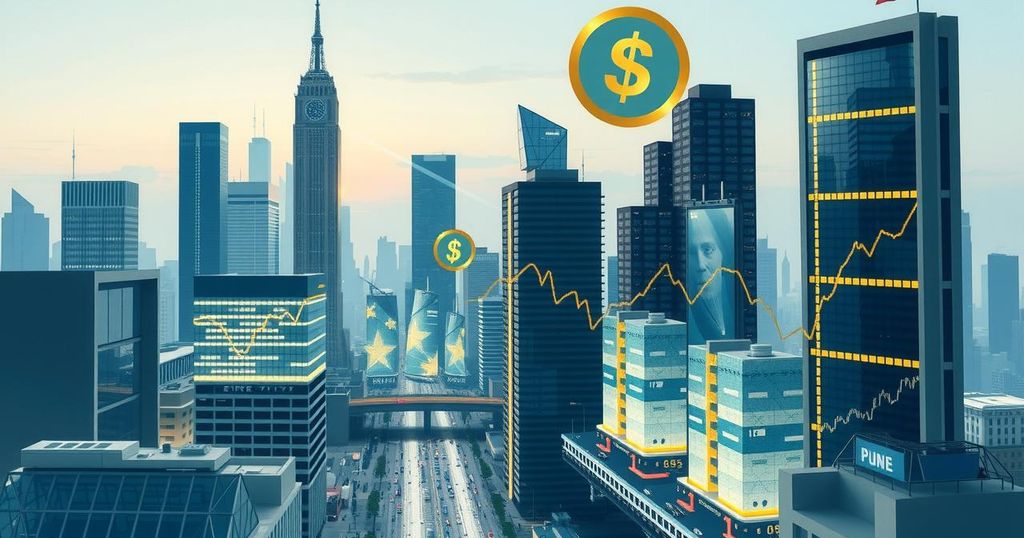Argentina’s Economic Recovery Under Javier Milei Faces Uncertainty
Argentina’s economic recovery under President Milei is precarious, with inflation reduced but significant challenges ahead. An expected IMF agreement may not sufficiently address the $40 billion debt. Political tensions and upcoming elections add complexity to reform efforts necessary for sustainable growth.
According to The Wall Street Journal (WSJ), Argentina’s economic recovery under President Javier Milei is currently at a standstill. Investors remain cautious, seeking clearer long-term strategies despite some initial progress noted during Milei’s tenure. The President succeeded in reducing monthly inflation from 20% to 2% and implemented a fiscal adjustment without triggering widespread unrest, but these achievements may be tested in light of recent societal tensions.
An anticipated agreement with the International Monetary Fund (IMF) could provide $12 billion to help refinance a portion of Argentina’s substantial $40 billion debt acquired during Mauricio Macri’s presidency. However, concerns persist that this financial aid will not adequately address major challenges, such as the removal of exchange controls. Moreover, the markets have reacted minimally, as the potential agreement was widely expected, according to the WSJ.
Analyst Mauro Roca noted the Argentine peso’s overvaluation against the US dollar, resulting in local prices being excessively high compared to international standards. Any premature loosening of capital controls or an adjustment to the exchange rate could jeopardize recent progress in inflation control. Despite initial victories, the WSJ expressed skepticism regarding Argentina’s capacity to escape its historical economic crises, emphasizing the necessity of substantial structural reforms for sustainable growth.
Politically, President Milei maintains significant popularity, exceeding 50%, even in the face of controversies, such as the $LIBRA token scandal. The mid-term elections looming in October will be crucial for the Milei administration’s ability to maintain momentum on reform efforts. While improvements in inflation figures were acknowledged, the overall economic situation in Argentina remains precarious, dependent on implementing deeper reforms and policies in the coming months.
The WSJ article reflects concerns articulated prior to recent mass protests and threats of a nationwide strike convened by major labor unions. Additionally, the revival of Sergio Massa, former Economy Minister and presidential hopeful, signifies heightened political opposition against Milei’s administration. The article concludes that Argentina’s economic trajectory relies heavily on the government’s capability to enact essential reforms that ensure fiscal stability and foster sustainable growth. Progress, however, may be stalled until after the upcoming elections, as anticipated reforms currently linger in uncertainty.
In summary, Argentina’s economic recovery appears uncertain as President Javier Milei faces mounting pressures and challenges. Initial achievements in reducing inflation may not suffice, given the need for comprehensive structural reforms. The anticipated IMF agreement offers some financial respite but may be inadequate for addressing deeper economic issues such as the exchange rate. Political dynamics, including upcoming elections and potential protests, will further complicate the implementation of necessary reforms. The path forward necessitates careful policy navigation to foster long-term stability and growth.
Original Source: en.mercopress.com




Post Comment